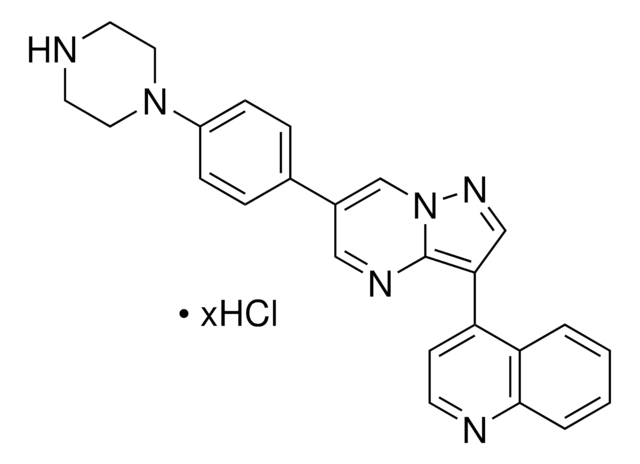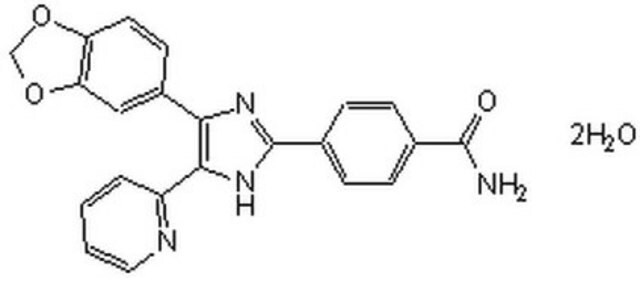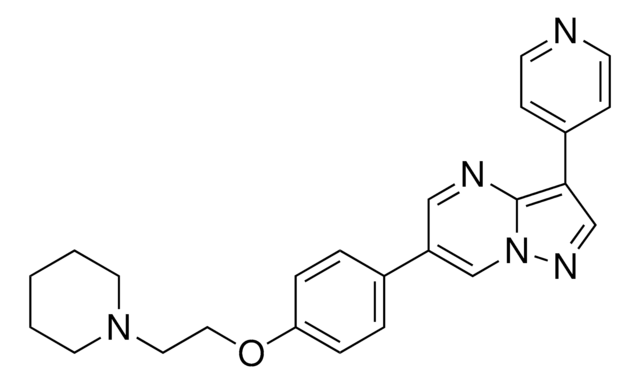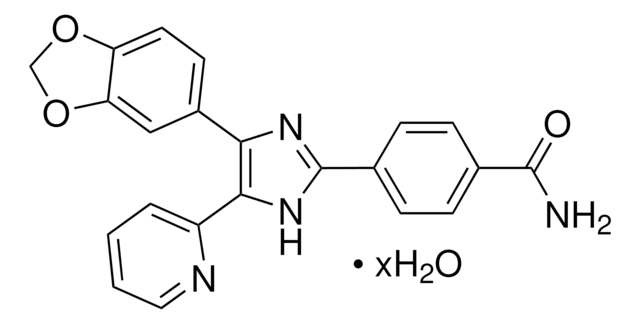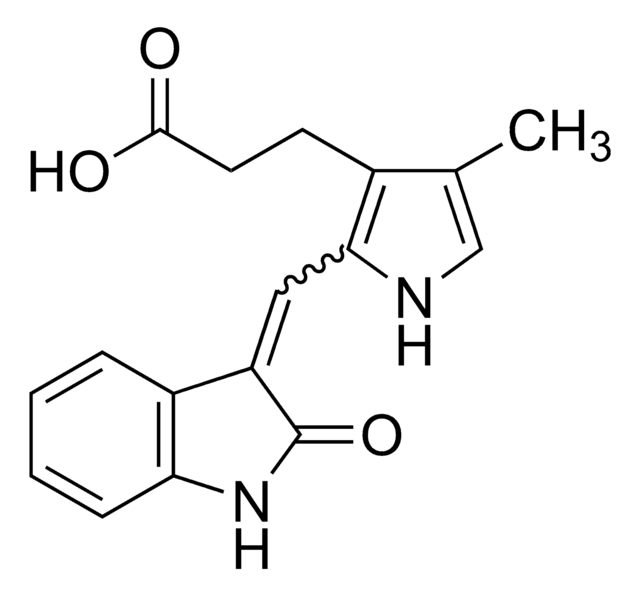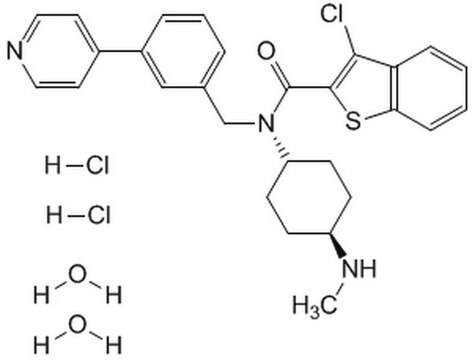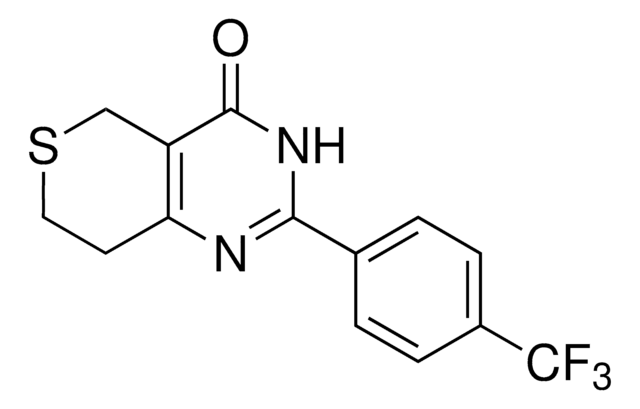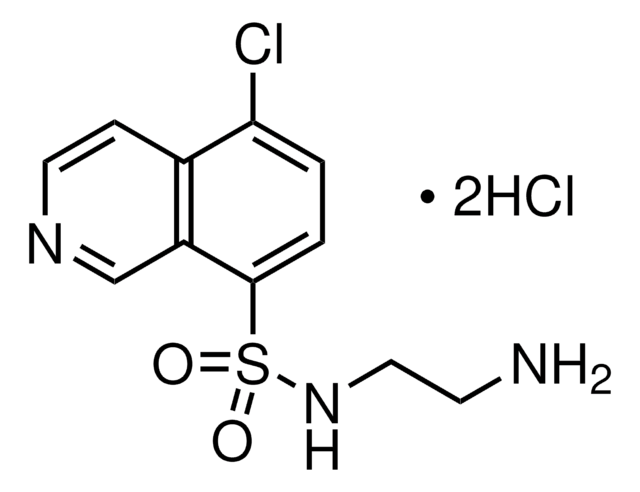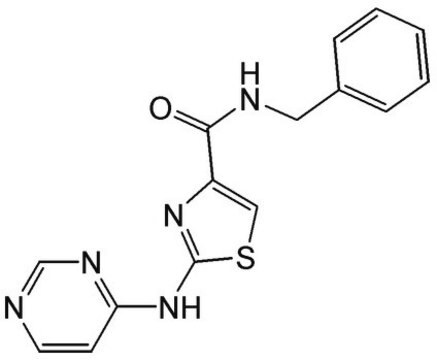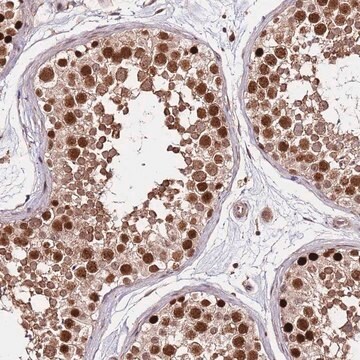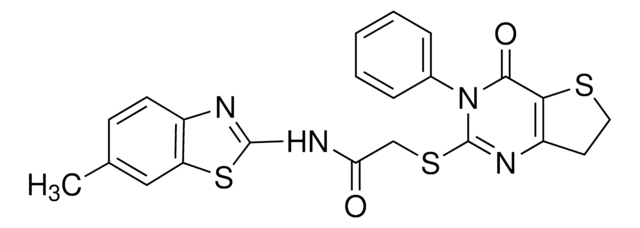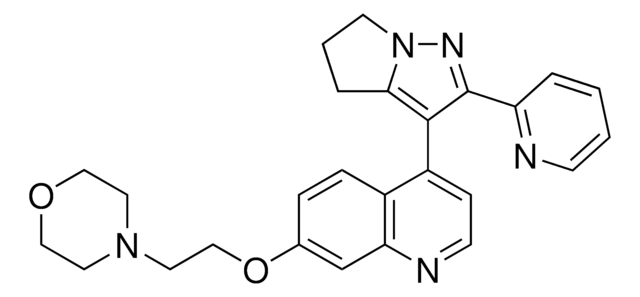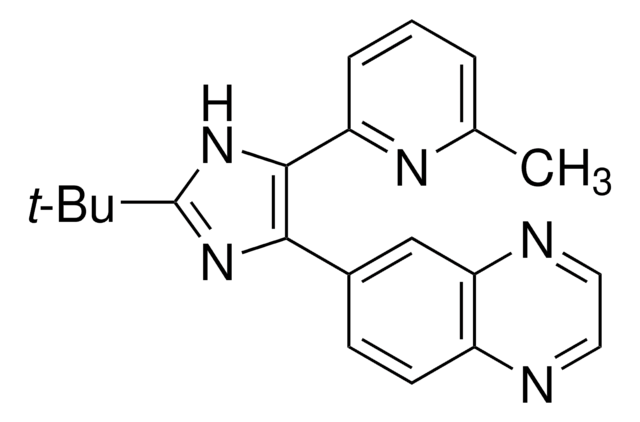S4317
SB 431542 hydrate
≥98% (HPLC), powder, inhibits activation of SMAD proteins
Sinónimos:
4-(5-Benzol[1,3]dioxol-5-yl-4-pyrldin-2-yl-1H-imidazol-2-yl)-benzamide hydrate, 4-[4-(1,3-Benzodioxol-5-yl)-5-(2-pyridinyl)-1H-imidazol-2-yl]-benzamide hydrate, 4-[4-(3,4-Methylenedioxyphenyl)-5-(2-pyridyl)-1H-imidazol-2-yl]-benzamide hydrate
About This Item
Productos recomendados
product name
SB 431542 hydrate, ≥98% (HPLC), powder
Quality Level
assay
≥98% (HPLC)
form
powder
solubility
DMSO: soluble 10 mg/mL
H2O: insoluble
originator
GlaxoSmithKline
storage temp.
−20°C
SMILES string
O.NC(=O)c1ccc(cc1)-c2nc(-c3ccc4OCOc4c3)c([nH]2)-c5ccccn5
InChI
1S/C22H16N4O3.H2O/c23-21(27)13-4-6-14(7-5-13)22-25-19(20(26-22)16-3-1-2-10-24-16)15-8-9-17-18(11-15)29-12-28-17;/h1-11H,12H2,(H2,23,27)(H,25,26);1H2
InChI key
WQUIJVKNPYBZOF-UHFFFAOYSA-N
Application
Biochem/physiol Actions
Features and Benefits
Legal Information
Storage Class
11 - Combustible Solids
wgk_germany
WGK 3
flash_point_f
Not applicable
flash_point_c
Not applicable
ppe
Eyeshields, Gloves, type N95 (US)
Certificados de análisis (COA)
Busque Certificados de análisis (COA) introduciendo el número de lote del producto. Los números de lote se encuentran en la etiqueta del producto después de las palabras «Lot» o «Batch»
¿Ya tiene este producto?
Encuentre la documentación para los productos que ha comprado recientemente en la Biblioteca de documentos.
Los clientes también vieron
Nuestro equipo de científicos tiene experiencia en todas las áreas de investigación: Ciencias de la vida, Ciencia de los materiales, Síntesis química, Cromatografía, Analítica y muchas otras.
Póngase en contacto con el Servicio técnico